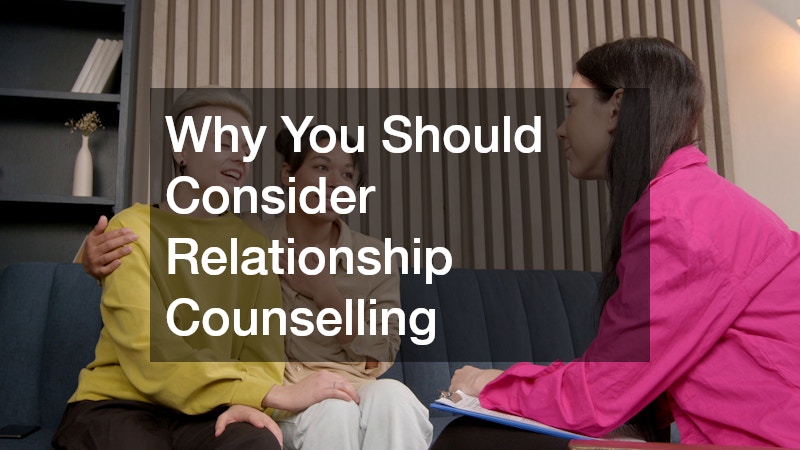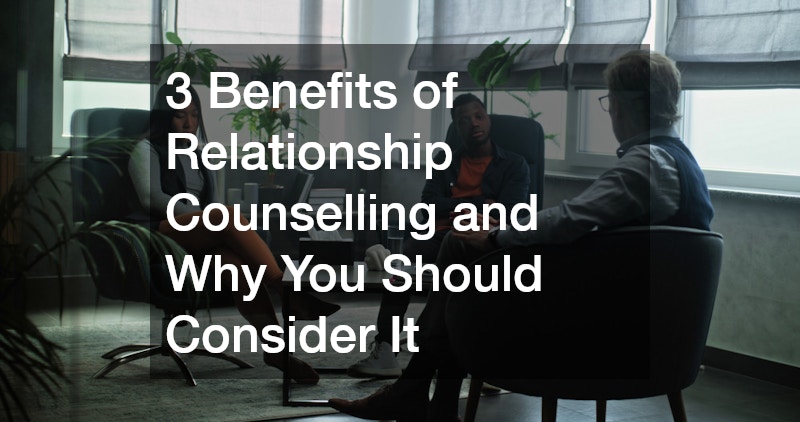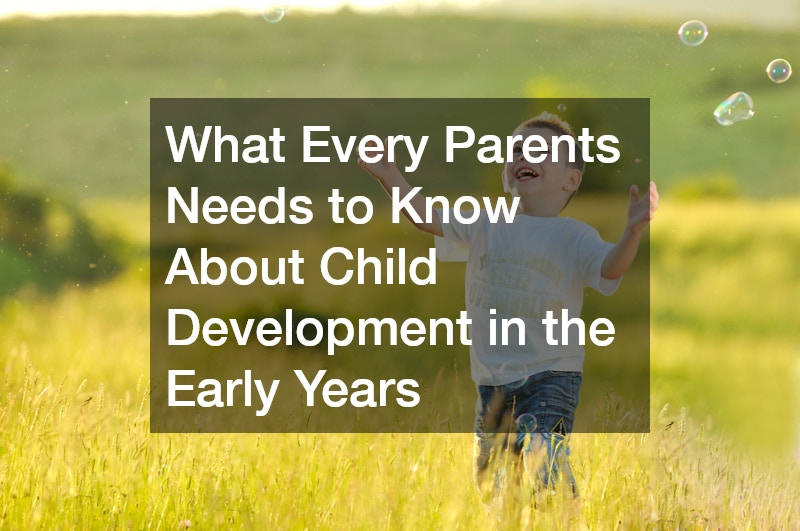3 Benefits of Relationship Counselling and Why You Should Consider It
Modern relationships face increasing pressure from work, finances, technology and shifting priorities. Whether you’ve been together for decades or just started building a life with someone, every relationship encounters its share of challenges. In many cases, those difficulties are manageable—but sometimes, patterns of conflict or emotional distance take root. When that happens, couples often feel stuck in a cycle of miscommunication, frustration and disconnection.
That’s where relationship counselling becomes a valuable support tool. More than just a last resort, counselling is a proactive step many couples take to strengthen their connection and deepen their understanding of one another.
If you’re unsure whether it’s right for you, consider these three core benefits of seeking guidance from a qualified therapist.
Improve Communication and Resolve Conflict Constructively
At the heart of most relationship breakdowns lies poor communication. Partners may feel misunderstood, unheard or dismissed. Miscommunication often leads to assumptions, resentment and arguments that go unresolved. In some cases, one or both partners may avoid conflict entirely, which leads to emotional suppression and growing distance over time.
Counselling helps couples identify where their communication style breaks down and how they can express themselves more clearly, calmly and effectively. A trained counsellor facilitates honest conversations, offering neutral ground for each partner to speak and be heard without judgement. They introduce practical tools and techniques, including active listening and assertive expression, to help reduce tension and foster clarity.
Learning to navigate conflict with empathy and respect doesn’t mean you’ll never disagree again. But it does mean you’ll be better equipped to resolve issues constructively, without falling into patterns of blame, withdrawal or hostility. For many couples, this improved communication becomes the foundation for a stronger, more resilient partnership.
Rebuild Trust and Emotional Intimacy
Trust is the cornerstone of any lasting relationship. But when it’s damaged—whether through dishonesty, infidelity or repeated disappointments—repairing it can feel daunting. Some couples attempt to move forward without truly addressing the root cause of the breach, hoping time will heal the wound. Others get stuck, unable to let go of past hurt or rebuild the emotional closeness they once shared.
In counselling, trust repair is handled with care and intention. Therapists guide couples through a process that acknowledges pain while also focusing on accountability, transparency and future intentions. This creates space for both partners to understand the impact of past actions, express emotions and work together toward healing.
Emotional intimacy doesn’t just happen—it requires consistent effort and vulnerability. Counselling helps partners reconnect on a deeper level by addressing underlying fears, unmet needs and barriers to closeness. With the right support, many couples rediscover the safety and connection they may have lost over time.
Deepen Self-Awareness and Strengthen the Partnership
One of the most powerful, yet often overlooked, aspects of counselling is the opportunity for personal growth. Many couples enter therapy expecting to focus solely on shared issues. However, the process often reveals individual patterns and beliefs that contribute to relationship struggles.
For example, a person who grew up in a household where emotions were discouraged may struggle to express vulnerability. Someone with a fear of abandonment might react strongly to perceived distance from their partner. These responses are not flaws—they’re human. But understanding where they come from empowers each partner to take ownership of their behaviour and change it for the better.
Relationship counselling creates a space for reflection, encouraging each person to explore their values, emotional triggers and communication habits. As self-awareness grows, so does empathy. Partners start to view each other with greater compassion, recognising that the relationship is not about winning or losing, but about growing together.
This shared commitment to learning and adapting strengthens the partnership. It fosters mutual respect and reinforces the idea that both individuals are capable of change—especially when they’re supported and motivated by love and connection.
Why You Should Consider Relationship Counselling
Some couples avoid counselling out of fear it signals failure. In truth, seeking professional help is one of the most courageous and hopeful things you can do for your relationship. Rather than giving up or settling for dissatisfaction, you’re choosing to invest in your emotional wellbeing and the future of your partnership.
Counselling is not just for couples in crisis. It can be incredibly effective as a preventative measure, especially during life transitions like moving in together, having children or navigating retirement. It’s also beneficial for partners who feel stable but want to grow and evolve together in a healthy way.
.





Post Comment